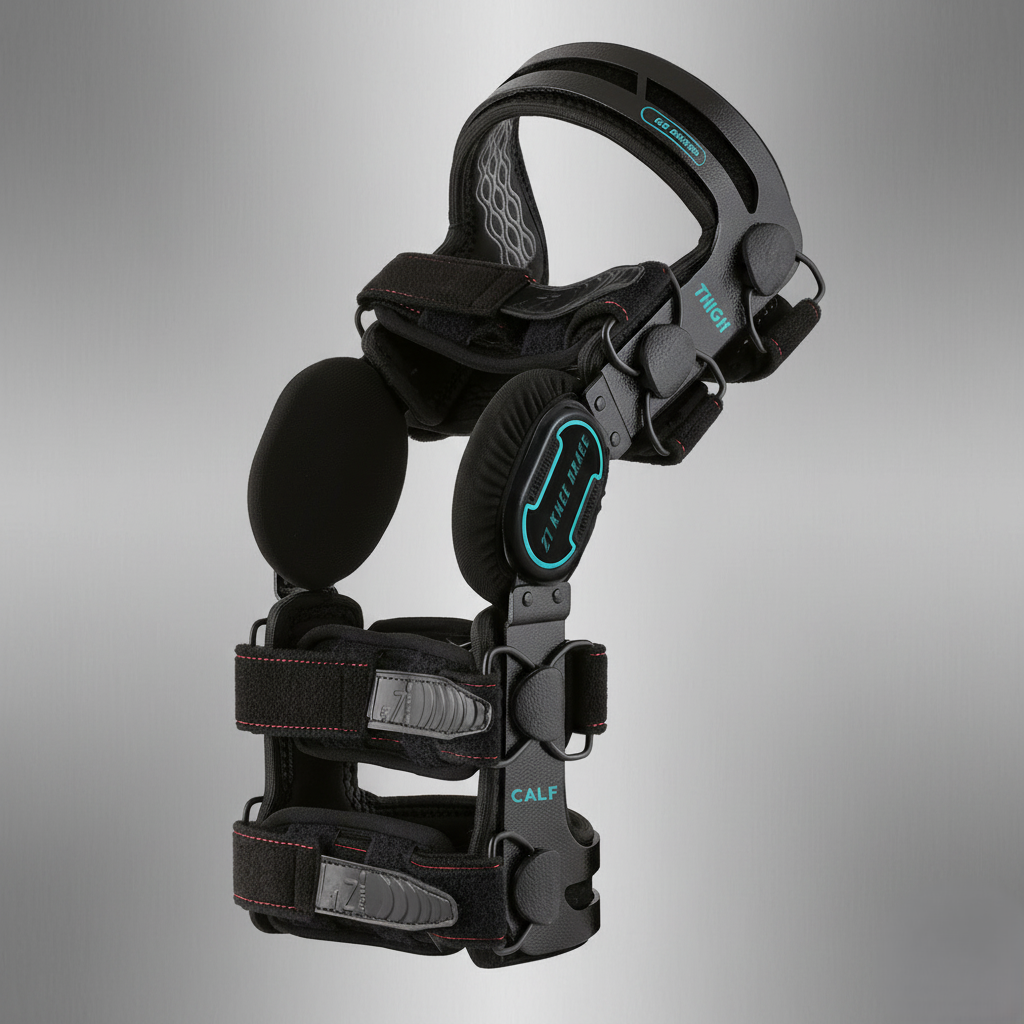Recovering from knee surgery—whether it’s ACL reconstruction, meniscus repair, ligament tightening, or fracture fixation—requires proper support and controlled movement. A metal knee brace after surgery plays a crucial role in this healing phase by offering rigid stability, preventing harmful motions, and protecting the surgical repair.
This article explains why metal knee braces are recommended after surgery, how they help recovery, their types, and the right way to use them.
What Is a Metal Knee Brace After Surgery?
A metal knee brace after surgery is a specially designed orthopedic brace equipped with metallic hinges, sidebars, and a rigid frame.
Its purpose is to:
-
Keep the knee aligned
-
Prevent excessive bending or twisting
-
Protect repaired tissues
-
Control the range of motion (ROM)
-
Support weight-bearing during early recovery
These braces are far stronger than soft sleeves, making them ideal for post-operative care.
Why Do Doctors Recommend a Metal Knee Brace After Surgery?
1. Provides Strong Stability
Metal hinges and frames restrict unsafe movements that could damage surgical repairs. This is essential during the early healing phase.
2. Controls Range of Motion (ROM)
Many post-surgery metal braces come with adjustable ROM settings. Doctors can limit how much you bend or extend the knee to prevent strain.
3. Reduces Pain & Swelling
By stabilizing the joint, the brace reduces stress on tissues, easing discomfort and minimizing inflammation.
4. Enhances Confidence While Walking
After surgery, patients often fear movement. A metal brace supports safe walking and reduces the risk of falls or re-injury.
5. Supports Gradual Rehabilitation
As therapy progresses, the brace can be adjusted to allow more motion, matching your recovery timeline.
Types of Metal Knee Braces Used After Surgery
1. Hinged Metal Knee Brace
Includes bilateral metal hinges for controlled movement. Ideal after ACL, PCL, or MCL surgeries.
2. Post-Operative ROM (Range of Motion) Brace
A fully adjustable brace that allows precise control of how much the knee can bend or straighten.
3. Rigid Frame Surgical Brace
A high-support option with a full metal frame for maximum protection, often used after complex surgeries or fractures.
How to Use a Metal Knee Brace After Surgery
1. Align the Hinges Properly
Place the brace so the metal hinges line up with the knee joint’s natural bending point.
2. Fasten the Straps Snugly
Start from the bottom and work upward. Ensure the brace is tight enough to stabilize but not restrict circulation.
3. Follow Doctor’s ROM Instructions
Never change the brace’s movement settings on your own. Only adjust as advised during physiotherapy.
4. Use It While Walking or Standing
Avoid weight-bearing without the brace unless the doctor approves.
5. Check for Discomfort
If you notice numbness, unusual swelling, or redness, inform your doctor or physiotherapist.
Who Needs a Metal Knee Brace After Surgery?
A metal knee brace is recommended for:
-
ACL, PCL, or MCL reconstruction
-
Meniscus repair
-
Patella stabilization surgery
-
Fracture surgery near the knee
-
Total or partial knee replacement
-
Ligament tightening procedures
-
Complex knee trauma
Both athletes and regular individuals benefit from the extra stability and controlled movement the brace provides.
Benefits of Using a Metal Brace in Post-Surgery Recovery
-
Protects surgical repairs
-
Prevents overextension or twisting
-
Helps maintain proper knee alignment
-
Supports controlled rehabilitation
-
Improves mobility and confidence
-
Reduces risk of re-injury
When to Avoid or Consult a Doctor
Contact your doctor if you experience:
-
Excessive swelling or pain
-
Skin irritation under the metal frame
-
Difficulty walking even with the brace
-
Numbness or tingling
Conclusion
A metal knee brace after surgery is a vital recovery tool that provides unmatched support, protection, and stability. By controlling motion and safeguarding healing tissues, it helps patients regain knee strength safely and confidently. With the right fit and medical guidance, this brace can significantly enhance your post-operative healing journey.




